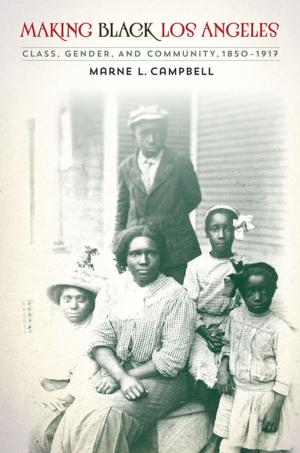Terror in the Heart of Freedom
Citizenship, Sexual Violence, and the Meaning of Race in the Postemancipation South
Nonfiction, Social & Cultural Studies, Social Science, Cultural Studies, African-American Studies, Gender Studies, Women&, History, Americas, United States| Author: | Hannah Rosen | ISBN: | 9780807888568 |
| Publisher: | The University of North Carolina Press | Publication: | June 1, 2009 |
| Imprint: | The University of North Carolina Press | Language: | English |
| Author: | Hannah Rosen |
| ISBN: | 9780807888568 |
| Publisher: | The University of North Carolina Press |
| Publication: | June 1, 2009 |
| Imprint: | The University of North Carolina Press |
| Language: | English |
The meaning of race in the antebellum southern United States was anchored in the racial exclusivity of slavery (coded as black) and full citizenship (coded as white as well as male). These traditional definitions of race were radically disrupted after emancipation, when citizenship was granted to all persons born in the United States and suffrage was extended to all men. Hannah Rosen persuasively argues that in this critical moment of Reconstruction, contests over the future meaning of race were often fought on the terrain of gender.
Sexual violence--specifically, white-on-black rape--emerged as a critical arena in postemancipation struggles over African American citizenship. Analyzing the testimony of rape survivors, Rosen finds that white men often staged elaborate attacks meant to enact prior racial hierarchy. Through their testimony, black women defiantly rejected such hierarchy and claimed their new and equal rights. Rosen explains how heated debates over interracial marriage were also attempts by whites to undermine African American men's demands for suffrage and a voice in public affairs. By connecting histories of rape and discourses of "social equality" with struggles over citizenship, Rosen shows how gendered violence and gendered rhetorics of race together produced a climate of terror for black men and women seeking to exercise their new rights as citizens. Linking political events at the city, state, and regional levels, Rosen places gender and sexual violence at the heart of understanding the reconsolidation of race and racism in the postemancipation United States.
The meaning of race in the antebellum southern United States was anchored in the racial exclusivity of slavery (coded as black) and full citizenship (coded as white as well as male). These traditional definitions of race were radically disrupted after emancipation, when citizenship was granted to all persons born in the United States and suffrage was extended to all men. Hannah Rosen persuasively argues that in this critical moment of Reconstruction, contests over the future meaning of race were often fought on the terrain of gender.
Sexual violence--specifically, white-on-black rape--emerged as a critical arena in postemancipation struggles over African American citizenship. Analyzing the testimony of rape survivors, Rosen finds that white men often staged elaborate attacks meant to enact prior racial hierarchy. Through their testimony, black women defiantly rejected such hierarchy and claimed their new and equal rights. Rosen explains how heated debates over interracial marriage were also attempts by whites to undermine African American men's demands for suffrage and a voice in public affairs. By connecting histories of rape and discourses of "social equality" with struggles over citizenship, Rosen shows how gendered violence and gendered rhetorics of race together produced a climate of terror for black men and women seeking to exercise their new rights as citizens. Linking political events at the city, state, and regional levels, Rosen places gender and sexual violence at the heart of understanding the reconsolidation of race and racism in the postemancipation United States.















